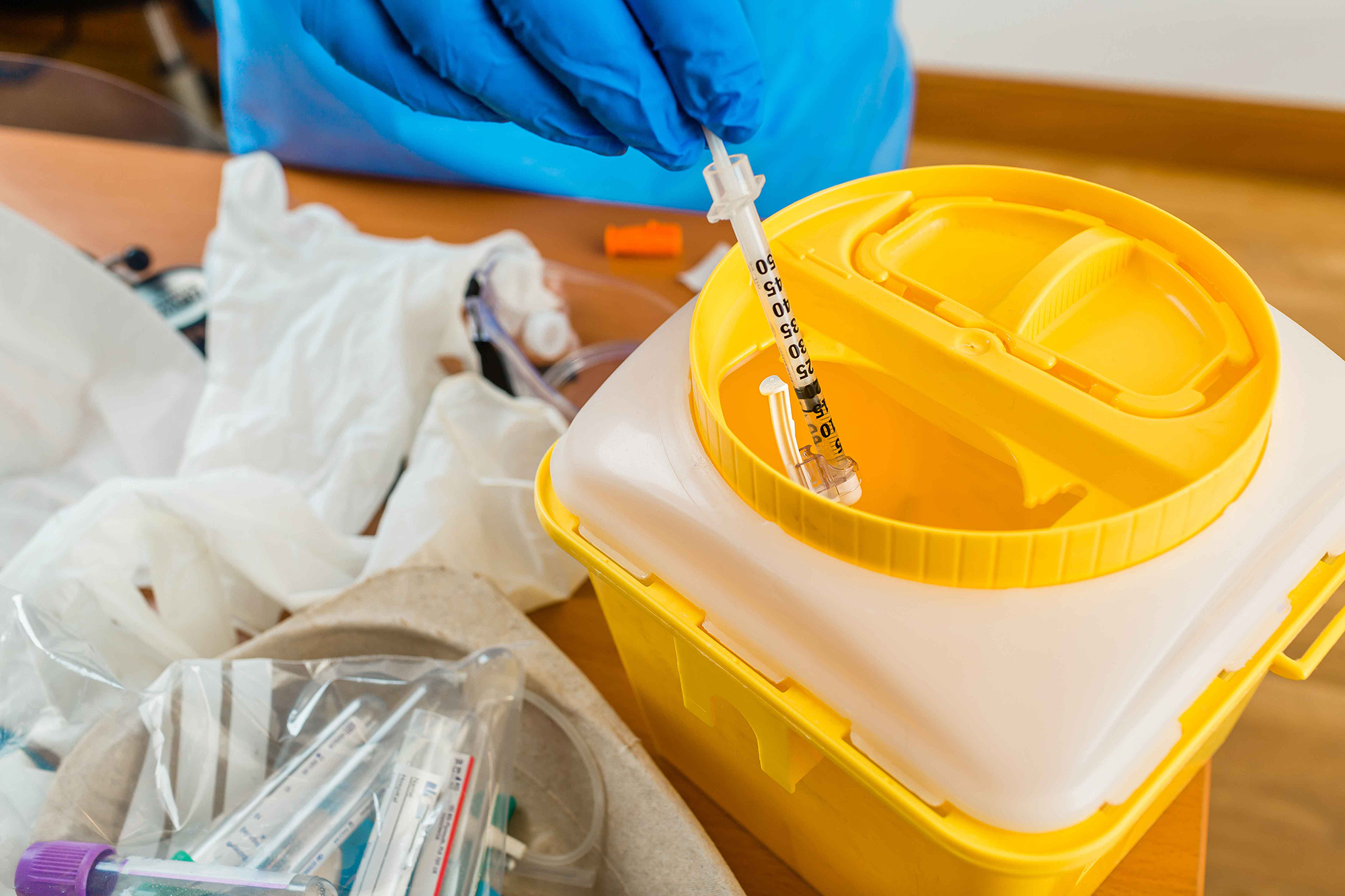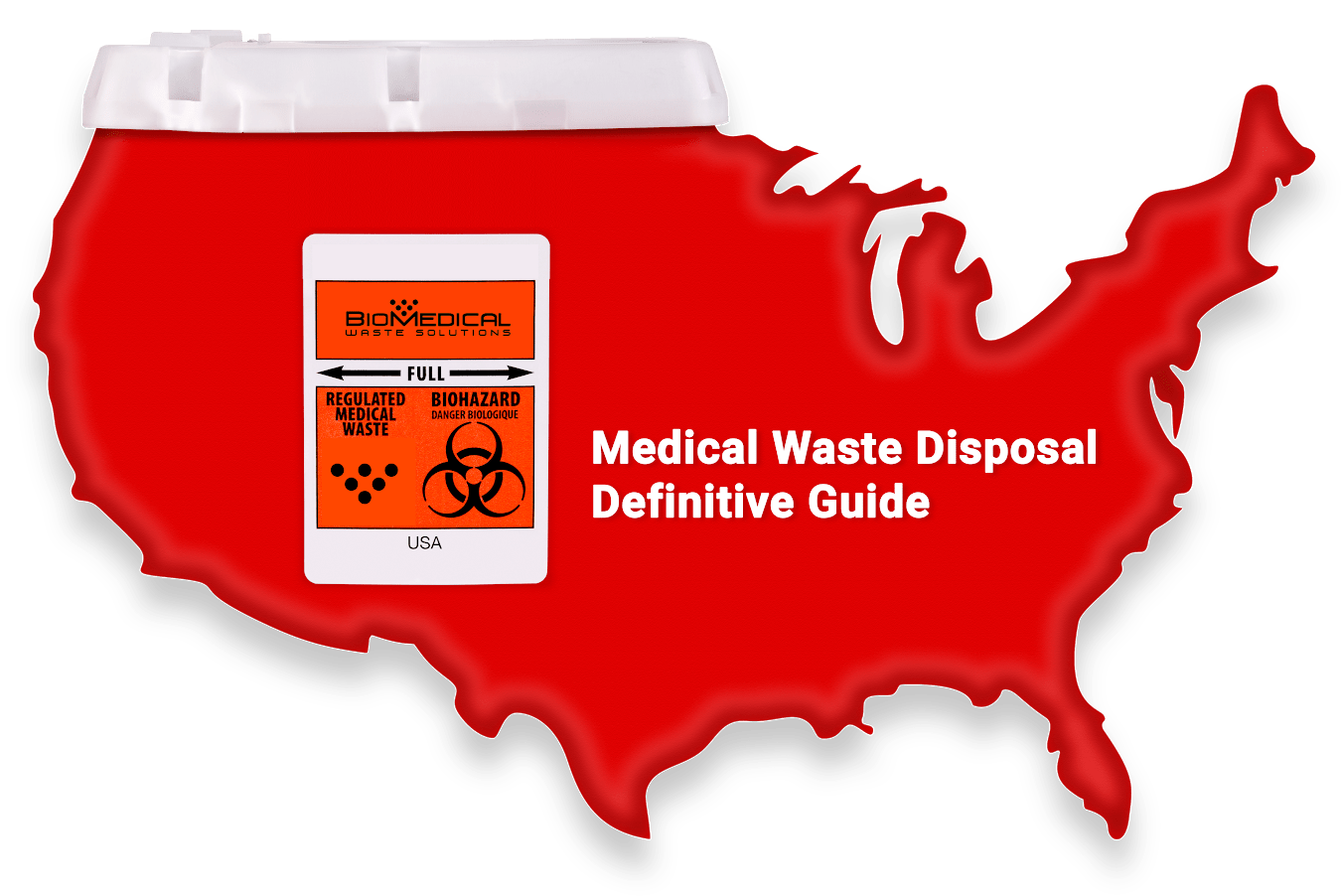Streamlined Medical Waste Disposal Services: Priority for Public Health
Streamlined Medical Waste Disposal Services: Priority for Public Health
Blog Article
Responsible Solutions: Recognizing Medical Garbage Disposal Provider
In the realm of healthcare, the correct disposal of medical waste is an important element that requires careful factor to consider. The importance of managing clinical waste sensibly goes beyond simple conformity with guidelines; it straight influences public health and ecological safety. As medical care centers create different kinds of waste that require customized handling, understanding the nuances of clinical garbage disposal solutions is extremely important. By checking out the complexities of this vital process, we can drop light on the ideal practices, benefits of expert solutions, and sustainable solutions available.
Significance of Appropriate Medical Garbage Disposal
Appropriate medical waste disposal is critical in maintaining a sanitary and safe atmosphere within healthcare centers. In health care setups, different types of waste are produced daily, consisting of contagious products, sharps, expired medications, and chemical compounds. If not correctly handled, these wastes can present significant risks to both medical care workers and the public. Incorrect disposal can lead to the spread of infections, injuries from sharps, contamination of water sources, and damage to the setting.

Types of Clinical Waste
Within health care centers, a varied array of waste materials categorized as clinical waste is produced, each needing certain handling and disposal methods. Medical waste can be classified into numerous kinds based on its attributes and prospective dangers. Infectious waste, such as used swabs, needles, and cultures, postures a significant risk of spreading out infections and must be meticulously dealt with to avoid any prospective injury. Hazardous waste includes chemicals, pharmaceuticals, and specific products that might be harmful or reactive. These materials require customized disposal techniques to reduce ecological influence and make sure security. Pathological waste, which consists of tissues, organs, and body components, demands proper disposal to value the self-respect of the dead and avoid any kind of biohazards. Pharmaceutical waste, like run out medicines and radiation treatment medicines, need to be disposed of correctly to stop abuse or environmental contamination. Recognizing the numerous types of medical waste is important for medical care centers to apply efficient waste monitoring strategies and secure public health and the atmosphere (Medical Waste Disposal Services).
Rules and Compliance
Medical care facilities should stick to rigorous policies pertaining to the handling and disposal of medical waste to make sure conformity with legal demands and safeguard public wellness. These laws are put in place to avoid the spread of infections, shield the setting, and keep the safety and security of healthcare workers and the public. Various governing bodies, such as the Epa (EPA), the Occupational Safety and Wellness Management (OSHA), and the Department of Transportation (DOT), have specific standards that medical care centers need to adhere to.
To follow these guidelines, medical care centers must appropriately set apart, shop, transportation, and throw away various types of medical waste. This consists of sharps waste, infectious waste, contaminated materials, and pharmaceutical waste, each needing certain dealing with treatments. her response Facilities must also maintain precise records of waste generation and disposal to show compliance throughout evaluations.
Non-compliance with medical waste policies can lead to extreme fines, penalties, and damages to the center's track record. It is vital for health care facilities to remain notified about the latest policies and execute robust conformity procedures to secure public wellness and the atmosphere.
Benefits of Specialist Disposal Providers
Involving expert clinical waste disposal services offers health care centers a trustworthy and More about the author effective option for managing dangerous products. These solutions utilize trained professionals who are skilled in handling various kinds of clinical waste, ensuring proper segregation, product packaging, disposal, and transport. Medical Waste Disposal Services.
Moreover, professional disposal services use advanced devices and comply with market finest methods to lessen environmental effect and minimize the danger of contamination. This not only promotes a safer work environment for medical care staff however also contributes to overall public health and security. Additionally, outsourcing clinical garbage disposal can bring about set you back financial savings in the lengthy run by eliminating the requirement for internal monitoring and disposal systems.
Sustainable Practices in Health Care

One trick sustainable method in healthcare is waste decrease. By executing approaches to reduce unnecessary packaging, single-use things, and overall waste generation, health care centers can substantially decrease the amount of waste sent out to land fills or incineration. In addition, recycling programs for materials like plastic, paper, and glass can even more reduce the environmental impact of medical care procedures.

Conclusion
Finally, proper clinical waste disposal is important in keeping a healthy and balanced and safe setting for both healthcare employees and the public. Comprehending the different sorts of medical waste, adhering to guidelines and compliance requirements, and utilizing specialist disposal solutions are vital action in responsible waste monitoring. By embracing sustainable methods in healthcare centers, we can decrease environmental effect and ensure the health of all people included in the medical care sector.
As medical care facilities create various kinds of waste that call for specific handling, recognizing the nuances of clinical waste disposal solutions is paramount.Within healthcare centers, a diverse selection of waste materials identified as medical waste is produced, each needing specific handling and disposal techniques. Recognizing the various types of clinical waste is vital for healthcare facilities to carry out reliable waste administration methods and protect public health and wellness and the setting.
By executing methods to lower unnecessary packaging, single-use things, and overall waste generation, health care facilities can dramatically lower the amount of waste sent out to landfills or incineration. Understanding the various types of medical waste, complying with laws and conformity criteria, and utilizing professional disposal services are important steps in liable waste monitoring.
Report this page